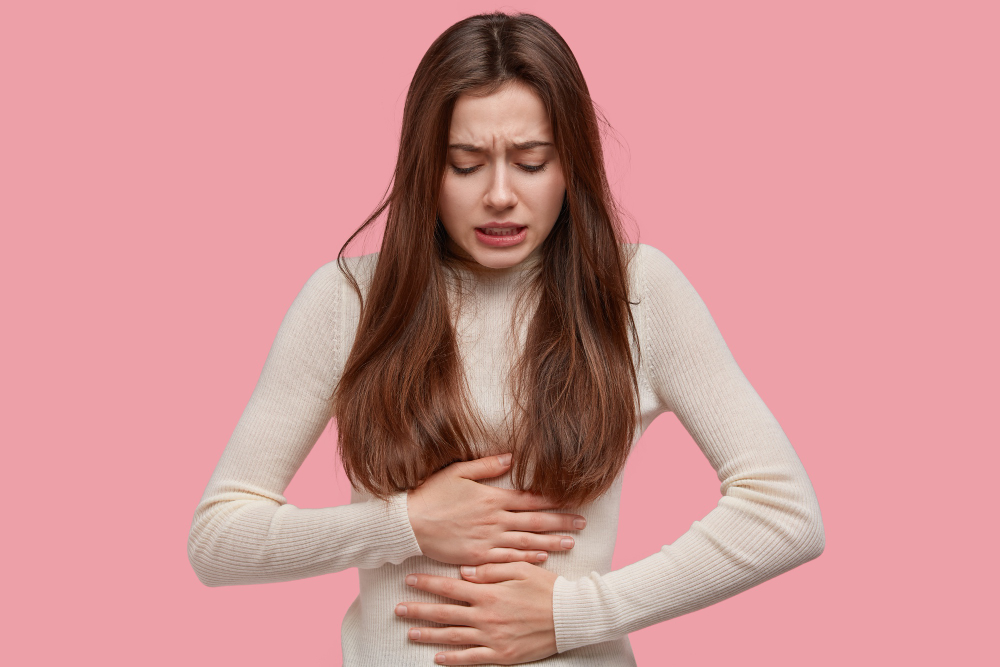
Menstruating twice a month can be normal for some women, but it can also be a sign of an underlying health problem. A normal menstrual cycle usually lasts between 21 to 35 days, and the menstrual period itself lasts about 2 to 7 days. However, every woman has a unique cycle, and small fluctuations may occur.
The following are some possible causes of menstruation twice a month and when you should seek medical help:
Causes of Menstruation Twice a Month
1. Hormonal Fluctuations
Hormonal changes can cause irregular menstrual cycles. These fluctuations can occur for various reasons, including stress, changes in body weight, or certain medical conditions.
2. Puberty
Teenagers who have just started menstruating may experience irregular cycles for the first few years. This is caused by hormones that are not completely stable.
3. Perimenopause
Women approaching menopause (perimenopause) often experience changes in their menstrual cycles, including more frequent periods.
4. Thyroid disorders
Problems with the thyroid gland, such as hypothyroidism or hyperthyroidism, can affect the menstrual cycle and cause more frequent periods.
5. Uterine Polyps or Fibroids
Polyps or fibroids in the uterus can cause irregular bleeding, including menstruation more than once a month.
6. Infection
Infections of the reproductive organs, such as urinary tract infections or pelvic inflammatory disease, can cause irregular bleeding.
7. Use of Contraception
Use or discontinuation of hormonal contraception, such as birth control pills, IUDs, or injections, can cause changes in the menstrual cycle.
8. Polycystic Ovary Syndrome (PCOS)
PCOS is a condition that causes a hormonal imbalance and can result in irregular menstruation, including menstruation twice a month.
9. Weight Loss or Excessive Exercise
Significant weight loss or excessive exercise can affect the menstrual cycle and cause more frequent periods.
10. Sexually Transmitted Diseases (STDs)
Some sexually transmitted diseases (STDs) can cause irregular bleeding.
When to Consult a Doctor?
Although menstruation twice a month can be a normal variation for some women, there are some signs that should not be ignored. You should consult a doctor if:
Heavy Bleeding: If you experience very heavy bleeding or bleeding that lasts more than seven days.
Severe Pain: If you experience severe menstrual pain or pain between menstrual periods.
Sudden Changes: If your normally regular menstrual cycle suddenly becomes irregular.
Other Symptoms: If you experience other bothersome symptoms such as extreme fatigue, unexplained weight loss, or drastic changes in your menstrual cycle.
Infection: If you experience symptoms of infection such as fever, pelvic pain, or unusual vaginal discharge.
Handling and Treatment
Treatment for twice a month menstruation depends on the underlying cause. Here are some approaches a doctor might take:
Hormone Treatment: If hormonal fluctuations are the cause, a doctor may prescribe hormonal contraception or other hormone therapy to stabilize the menstrual cycle.
Thyroid Treatment: If there is an underlying thyroid problem, medication to regulate thyroid function may help.
Surgery: For polyps or fibroids that cause bleeding, surgery may be necessary.
Infection Treatment: If infection is the cause, antibiotics or other treatment may be necessary.
PCOS Management: For PCOS, treatment may include lifestyle changes, medications, and hormone therapy.
Keeping detailed records of your menstrual cycle, including the start and stop dates of menstruation, amount of bleeding, and other symptoms, can help you recognize your body. If you experience menstruation twice a month and are accompanied by other symptoms, don't hesitate to see a doctor. (Aq/LDS)